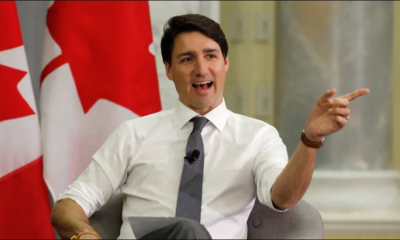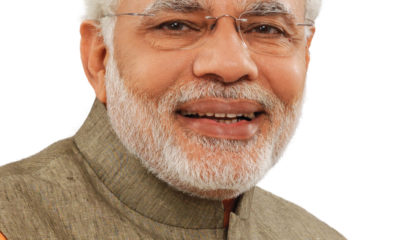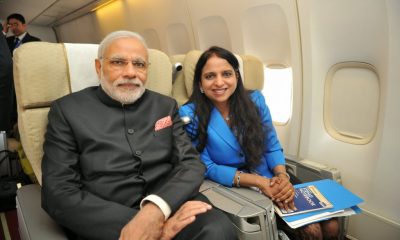World
Obama’s approval rating rises to 54%: Poll
 Washington : US President Barack Obama’s approval rating has risen to 54 per cent, the highest level since just before his second inauguration in 2013, a new poll showed.
Washington : US President Barack Obama’s approval rating has risen to 54 per cent, the highest level since just before his second inauguration in 2013, a new poll showed.
According to the new CNN/ORS poll, Obama’s approval rating dipped to 50 per cent after the Republican convention held from July 18 to 21, but has risen to 54 per cent in the wake of his Democratic Party’s convention held from July 25 to 28, with a 45 per cent disapproval.
The increase in Obama’s approval rating comes mostly among younger Americans — he is up 9 points among those under age 45 while losing a point among those age 45 or older — and political independents and moderates — up 9 points among each group, CNN reported citing the poll.
Compared with other recent two-term presidents, Obama’s approval rating at this stage of his presidency ranks on par with Ronald Reagan’s ratings in 1988, and are approaching Bill Clinton’s 57 per cent at this point in 2000, the poll said.
According to the poll, Obama’s improving approval ratings and outspoken stance against Republican nominee Donald Trump could prove beneficial to the Democrat seeking to succeed him in office, Hillary Clinton, CNN said.
Those who approve of Obama’s work as president are almost universally in Clinton’s corner in the upcoming presidential race, 94 per cent of those voters back Clinton in a two-way head-to-head, while Trump carries 85 per cent of those who disapprove of Obama.
Most voters said that if she were elected, Clinton would mostly carry out Obama’s policies, 64 per cent say so to 33 per cent who think her policies would mostly be different from Obama’s, the poll showed.
The CNN/ORC Poll was conducted by telephone July 29-31 among a random national sample of 1,003 adults, including 894 registered voters.
Results among the sample of registered voters have a margin of sampling error of plus or minus 3.5 percentage points.
World
Lockdowns in China Force Urban Communities to Defy Censorship and Vent Frustration Online

Shanghai’s rich middle class is leading a wave of online dissent over the strict and prolonged lockdowns imposed in various parts of the country. Chinese internet censorship is struggling as patience is wearing thin in many urban centers, coming up with creative forms of online protests.
Social Media Posts Revealing Lockdown Tension in Shanghai
Drawn-out lockdowns are nothing new in China as authorities insist with the nation’s zero-Covid policy since the start of the pandemic. Currently over This time around, however, metropolitan areas like Shanghai are increasingly difficult to keep quiet, given that its more than 25 million residents have seen weeks of total isolation along with food shortages and many other service interruptions.
Dozens of towns and reportedly over 300 million Chinese citizens have been affected by lockdowns of different severity. As expected, urban netizens have been most outspoken over their difficulties by finding creative ways to get around state censorship and bans placed on topics, news comments and spontaneous campaigns.
Shanghai residents have been using mobile proxies and hijacking seemingly unrelated hashtags to talk about healthcare issues, delivery failures and the overall severity of their situation. The “positive energy” that the Chinese government wants to transmit during the recent prolonged series of lockdowns does not come naturally to those counting food supplies and online censors are working hard to filter words, trending topics and undesired social media sharing.
WeChat groups and message threads are under constant monitoring. Posts questioning the zero-Covid approach have been quickly deleted, including by leading Chinese health experts like Dr. Zhong Nanshan. Video footage is soon censored and protests and investigations are quickly made to disappear.
Where this has not worked, officials have exposed banners with warnings and outright threats like “watch your own mouth or face punishment”, while drones have been patrolling the city skies. Yet, if anything, this has led to further tensions and unspoken confrontation with Shanghai’s educated and affluent middle class.
Creative Online Solutions Harnessing Civic Energy
Announcements by Chinese social media that they would be publishing the IP addresses of users who “spread rumors” have not helped either. Tech industry research has shown that much of Asia’s tech-savvy population has a habit of using mobile proxies and other privacy tools, quickly finding workarounds to browse the internet freely and talk to the world about the hottest topics.
The sheer volume of forbidden posts is already a challenge for the very censorship system, experts explain. Unable to track all trending hashtags, state workers overlook topics that speak about the US, Ukraine or other popular news. Linking human rights elsewhere to their situation, Chinese online dissidents establish their informal channels and “hijack” the conversation to share personal or publicly relevant information about the Covid suppression in their town.
Sarcastic and satirical posts still dominate. Others hope to evade the censors by replacing words from famous poems or the national anthem. One thing is certain – social media, when harnessed with the right creativity, has proven its ability to mount pressure on the government in even some of the most strictly controlled tech environments like China.























